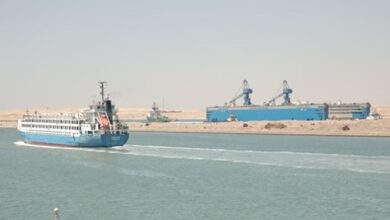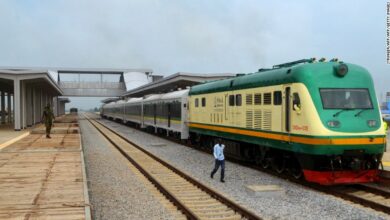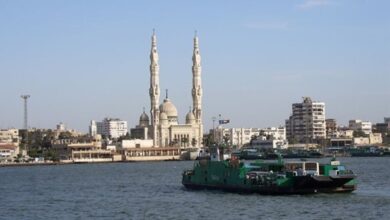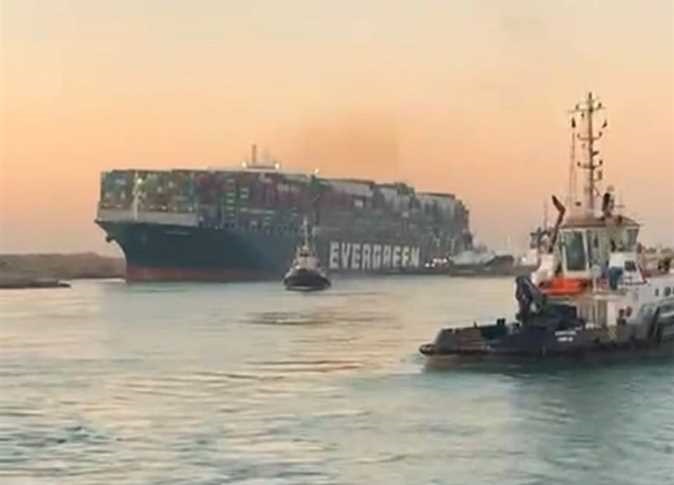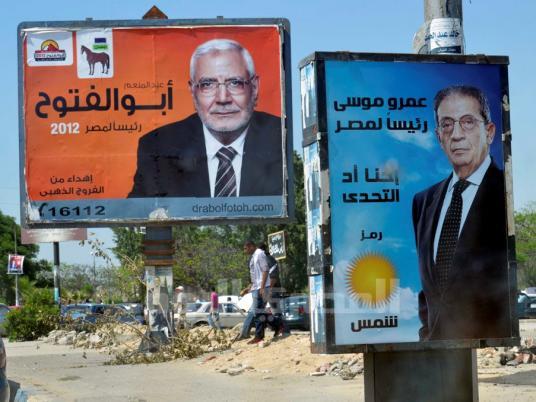
Port Said — On a cloudy day, 52-year-old taxi driver Sayed Mutayei drives his car down 23 July Street, one of Port Said’s most famous streets.
“The country is asleep, commercial traffic is weak and tourism is almost non-existent,” says Mutayei. “What happened to the old Port Said?”
The violent events that followed a football game between Cairo’s widely popular Ahly football team and Port Said’s Masry team, which left 74 people dead, continues to cast a dark shadow over the commercial city’s political landscape. Port Said had been known as one of the largest shopping centers in Egypt.
Mutayei hopes a new president will bring with him a solution to the crisis that followed the football match, which has affected both trade and transport movement in the city, which is home to nearly 620,000 people.
Following the incident, Port Said went through difficult times, suffering food shortages as suppliers feared bringing in their goods or dealing with traders in the city. Sanctions were also imposed by the Egyptian Football Association on the Masry team which was suspended for two seasons and relegated from playing in the first division to second division. This was also considered by the residents of Port Said a huge economic loss, as football games generated considerable income, not to mention the fact that the team was considered an official representative of the city.
“This country needs someone like Abdel Nasser, he nationalized the Suez Canal in 1952 and he knew the true value of the Egyptian people,” Mutayei told Egypt Independent.
Mutayai’s sentiments represent those of many Port Said residents, a large number of whom believe the Port Said Stadium violence was orchestrated by someone wishing to ignite sedition in one of the Suez Canal’s most important cities, in which the Suez Canal Authority headquarters is located.
The city’s main streets and squares are now plastered with posters and banners of Islamist candidates, especially Mohamed Morsy, the Muslim Brotherhood’s candidate, who visited the city on Sunday and toured its various districts. However, who will win the lion’s share of Port Said’s votes is yet to be seen.
“Port Said is a free trade zone that includes a major port and the Suez Canal Authority headquarters; in other words, it includes the interests and businesses of entrepreneurs accustomed to working in a particular manner and the atmosphere provided to them by the previous regime who gave them advantages…therefore, it is only natural that their votes will go to [Ahmed] Shafiq or [Amr] Moussa, the icons of the former regime,” 50-year-old Mohamed Hassan, a security guard at Port Said Stadium, said.
“I do not deny the Muslim Brotherhood’s or Islamist movements’ presence in the city in general, but their poor performance in Parliament, which was evident by their failure to protect the city from the attacks launched against it after the incident as well as the failure of their initiatives to end the crisis, has greatly impacted their candidates’ luck,” Hassan added.
Meanwhile, Freedom and Justice Party spokesperson in Port Said Arafa Abu Selima told Egypt Independent that it was anyone’s guess who would win in the upcoming presidential election and that residents in the city have been questioning the FJP’s reasoning for fielding a presidential candidate after initially announcing they would not be doing so.
“The media and campaigns of other candidates have succeeded in influencing the votes of the people in the city by convincing them that Parliament’s performance concerning the [football violence] incident was negative,” said Abu Selima. “This is not true; the city’s representatives in the People’s Assembly have made many inquiries into this. Further, they are not part of the legislative authority which monitors nor the executive authority which is entitled to investigate this matter.”
During the parliamentary elections, Islamists candidates won four of the six seats in Port Said, two of which went to the FJP and one for both the Nour and Wasat parties.
While discussing the presidential election, Port Said residents are also focusing on the Suez Canal, which is the second largest source of national income in Egypt. The platforms of most presidential candidates have provided examples of ways to develop the canal. For example, Ahmed Shafiq’s program includes an idea concerning the utilization of 193 km of land surrounding the Suez Canal which would allow it to become the largest industrial free zone in the world.
“A monthly share coming directly from the Suez Canal must go to the people. If that happens I bet you half of Egypt's poor will become rich or at least will be able to live a decent life,” Mutayai said.
On the other hand, things vary greatly in Suez City, known as being a stronghold for the Salafi movement.
Residents of this city are betting on the Islamist candidates, with limited backing of former regime figures by familial and tribal communities.
“I will vote for Morsy; he came here to the gas station, shook our hands, and came and spoke with us for several minutes. This is the president we want … someone close to the people,” said Ahmed Abu Hassan, 42, a gas station worker.
However, the competition became heated between Abdel Moneim Abouel Fotouh, who is backed by the Nour Party and the Salafi Dawah, and Morsy following Suez’s Salafi Asala Party’s endorsement of Morsy.
Mohamed Farouk, a member of Morsy’s campaign in Suez, said, “The Nour Party’s delay in supporting a candidate has caused many people to profess their support for Morsy, especially since the city’s Salafi Front members far outnumber Salafi Dawah and Nour Party members.”
The Islamic Alliance, which included the Nour and Asala Parties, had previously won four of the six seats in the parliamentary elections in Suez Governorate; however, now that the two parties have gone their separate ways, the votes will be divided between the two most prominent Islamists in the race.
It appears that most of the Abouel Fotouh and Morsy supporters relied on religion in making their choices, while many among the city’s youth have another opinion. These youth suffer greatly from the high unemployment rate in Suez and are therefore looking for a candidate they think can solve this problem.
Thirty-year-old Khalil Karam, a salesman at a fruit shop, said, “I will vote for Moussa … he is a man of experience with foreign relations through which he can create new job opportunities.”
Khalil refused to call Moussa a remnant of the former regime and said that Moussa would be able to put a stop to the corruption and bribery that plagues state institutions with his administrative experience as a former statesman.
“Of course, I’d leave this job if I found a better one…In such a case I would feel my voice has value and that Moussa was the right choice,” Karam concluded.

